During and after the First World War, Count Felix von Luckner gained legendary status for his ability to wage warfare without casualties, his honorable treatment of prisoners, and his daring prison escape.
Born to a minor aristocratic German family in 1881, he would repeatedly defy his family’s wishes and end up a successful captain during the war. After numerous successes at sea, and only causing one accidental causality, he was captured, although he later attempted an escape.
He became a well-respected legend, and many began to see him as a prototype of the honorable aristocratic gentleman of old. He represented an ideal of a time when both sides in a conflict were respectable. However, later in life, his story took a dark turn that has caused many to dispute that reputation.
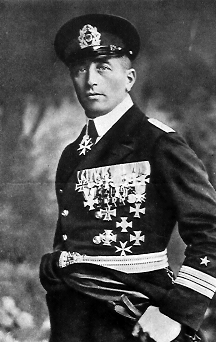
As a young boy, Luckner was determined to join the navy. However, his family demanded that he follow in their tradition of serving in the cavalry. He would disappoint his family by failing at multiple private schools and running away from home to become a cabin boy on a Russian sailing ship at the tender age of thirteen.
After narrowly surviving an incident where he fell overboard, his desire to sail seemed to be tempered since he jumped ship in Australia.
On this new continent, Luckner took on a remarkable variety of jobs. He was an assistant to a lighthouse operator, a boxer, a bar and tavern worker, a kangaroo hunter, a circus worker, and a railroad worker. For a short period of time, he took a detour to Mexico to serve in the personal guard of President Diaz.
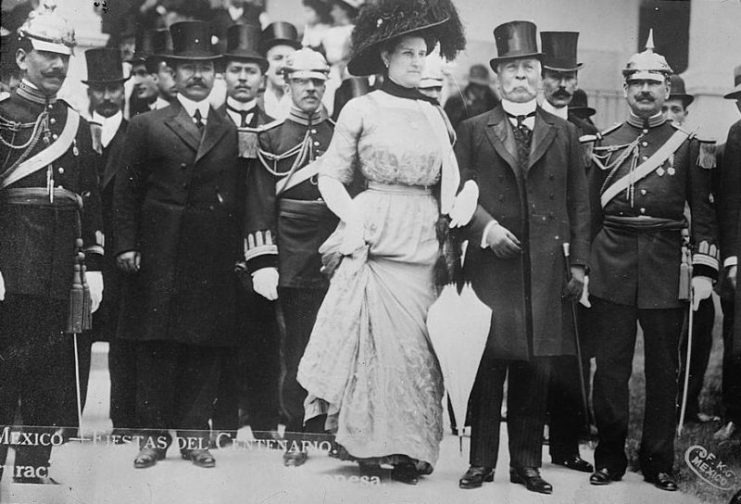
After a stint in a Chilean jail – he was accused of stealing pigs – he suffered a couple of broken legs and decided to return to Germany once he recovered. Having returned home, he started performing magic tricks and became so popular that he was invited to perform for none other than Kaiser Wilhelm himself on the Kaiser’s private yacht.
Luckner returned to the sea at the age of 20, when he began attending navigation training school. After earning his mate’s license, he served on several ships before being called upon by the German navy to serve on a gunboat shortly before the war broke out.
He took part in the first naval battle in the war at Heligoland Blight (a British victory) and operated a gun turret on the battleship Kronprinz Wilhelm during the inconclusive Battle of Jutland. However, his more remarkable exploits were just beginning.
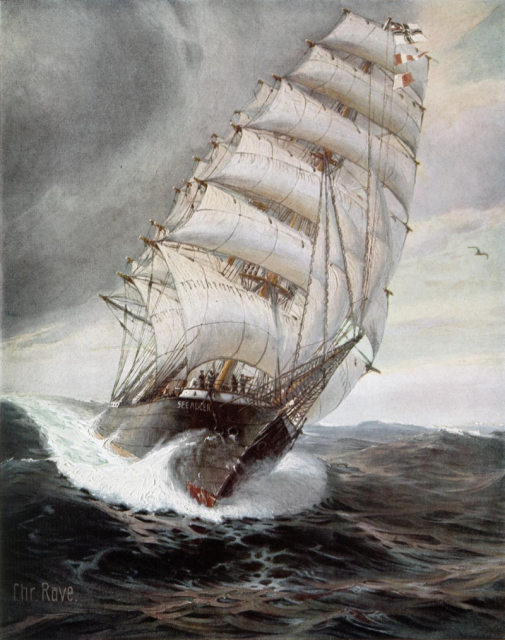
By 1915, the German navy was desperate. Their commerce raider fleet had been decimated, and they began to put any ship into action that they possibly could. This included the laughably outdated three-masted sailing ship the Pass of Balmaha.
Since he had experience on sailing ships, Luckner was given command of the Pass of Balmaha. After being fitted with several hidden 105mm guns and two hidden 500 horsepower auxiliary engines, the ship was renamed Seeadler, German for “Sea Eagle.”
Unsurprisingly, the Seeadler was able to slip through the British blockade. After all, in the era of dreadnoughts, who would dare challenge the mighty English fleet with a three-masted sailing ship from the 1800s?
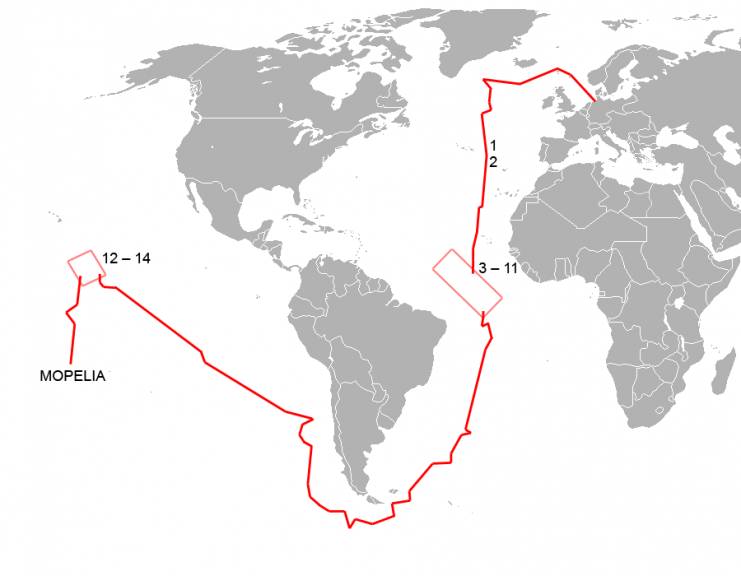
After using his fluency in Norwegian to convince a British inspection party that they were a neutral trade ship, Luckner and his crew were free to pillage and raid throughout the Atlantic. Thus the Seeadler began a career that in many ways resembled piracy – perhaps suitable for a three-masted ship.
The first ship to fall victim to the Seeadler was the Gladys Royle, a British armed merchant ship. After fooling the Royle into approaching by requesting a time signal, the Seeadler raised the German flag when the Royle was too close to take evasive action.
After several shots, the Royle surrendered without a fight, and without a single casualty. The Seeadler would soon claim nearly a dozen more victims, often through the use of deception, including more false signals for help or information. In one instance, smoke was sent up to make it appear that the ship was aflame and in need of rescue.
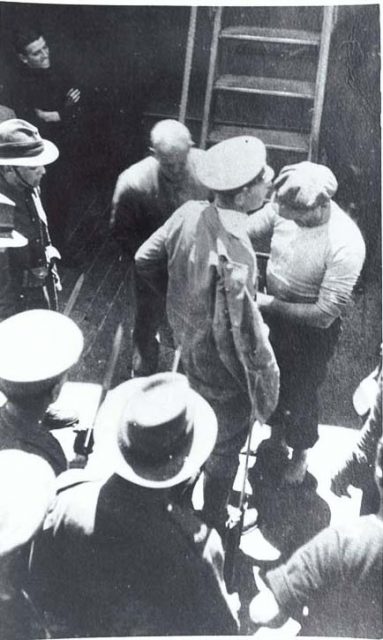
Luckner and his men soon gained a reputation as honorable opponents, as they consistently treated their prisoners well. On one occasion, the captives were even allowed them to join in a feast with wine and plentiful food.
Throughout its career, the Seeadler would cause only a single death. The fatality was only as a result of a shell accidentally hitting a steam pipe on a ship, which then exploded, killing one man. The shot had been intended to take out the ship’s communications.
However, the Entente powers were not going to take this lightly, and soon the Seeadler moved around South America and into the Pacific to avoid patrols sent after it. At this point, the United States had entered the war so the Seeadler turned its attention towards American ships, sinking several vessels.
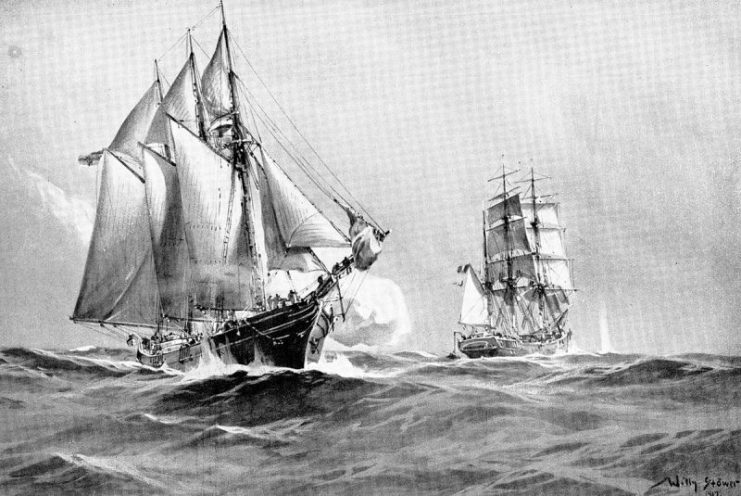
Ultimately, the Seeadler’s voyage had to come to an end. While laid up in the South Pacific to clean the hull, the ship became grounded could not be rescued. Even then, Luckner was not about to give up.
Having salvaged several smaller boats from the Seeadler, Luckner and his men began to sail to nearby South Pacific islands. They gained provisions by posing variously as shipwrecked Norwegians, or as Dutchmen crossing the ocean on a bet. Eventually, Luckner was out-bluffed.
When he and his men arrived on a small Fijian island, the local administrators felt that something was off. When police arrived, they pretended to have a cannon on the island that would sink Luckner’s ship if he did not surrender at once. Luckner surrendered and was taken to a prison camp off the coast of New Zealand.
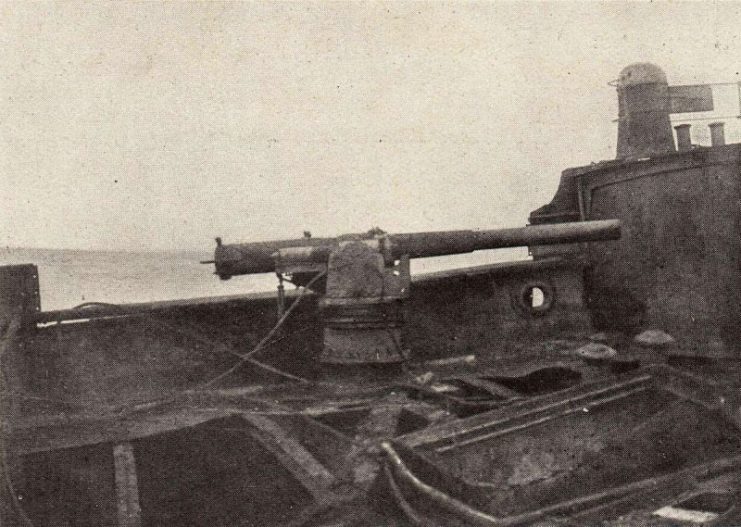
But Luckner still had some fight left in him. He and his men pretended to set up a Christmas play at the camp. They were given some pieces of cloth as supplies, as well as a textbook’s map. This cloth soon became a sail and a flag when Luckner and some of his men snuck out one night after cutting the phone lines.
After that, they stole the commander’s own motor boat, the Pearl. However, this escape only lasted several days, as a New Zealand auxiliary ship successfully guessed his destination and recaptured him.
Although Luckner would spend the rest of the war as a prisoner, his exploits after the war might have been the most significant of his life.
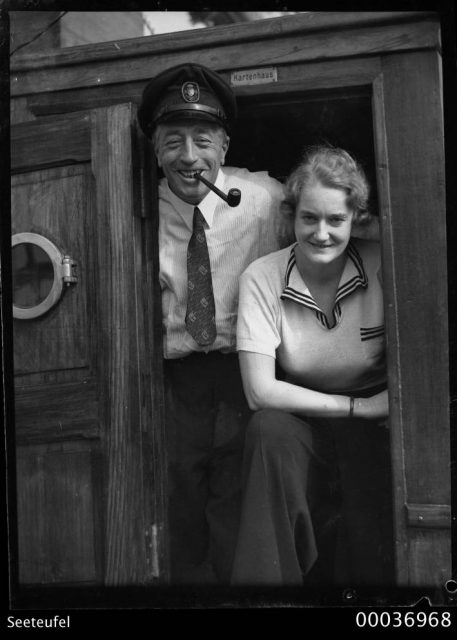
A few years after the armistice, Luckner wrote an autobiography that quickly became a bestseller and was translated into English. Soon, several other authors wrote about his story and increased his fame, frequently portraying him as an honorable gentleman.
By the mid 1920s, he had taken to the sea again for a goodwill tour and had hundreds of speaking engagements across the United States and former Entente powers. He was even made an honorary citizen of San Francisco and given the key to several major cities.
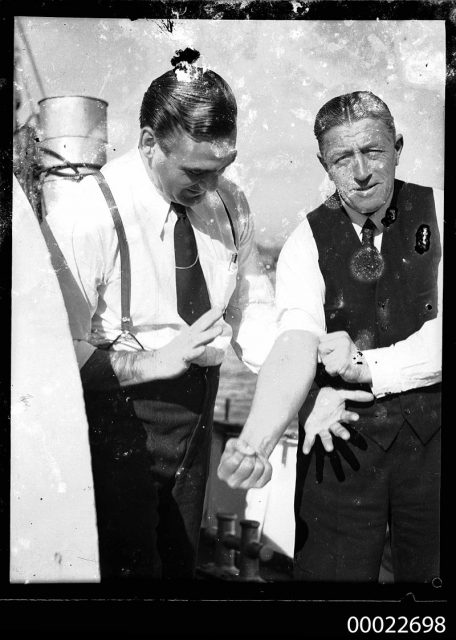
Luckner’s story took a darker turn in 1938 when he went on another goodwill tour, this time at the behest of the German government. Upon visiting Australia, despite a warm public reception, the Commonwealth Investigation Branch began keeping tabs on him and sending agents to events where he appeared.
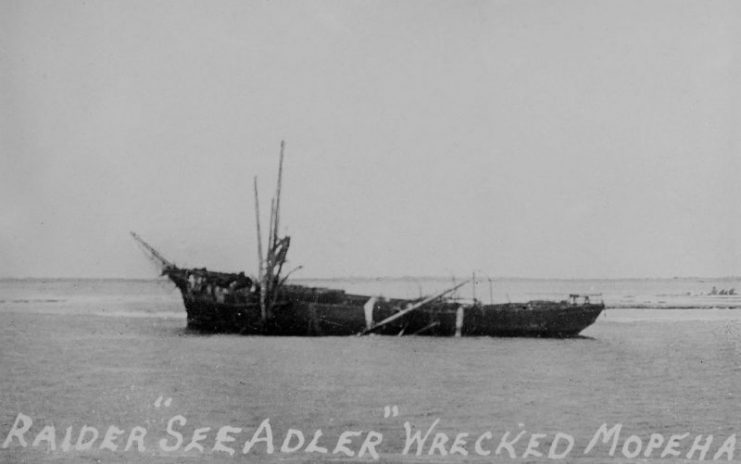
Recently released government documents revealed that Luckner was in contact with numerous far-right activists and spoke at an event where the menus were decorated with a swastika.
Even worse, it appears likely that he used his ship to stake out several Australian ports, and probably used geomapping technology to determine where Germans should place mines to disrupt a shipping channel. In the war, several Australians were killed by German mines in areas Luckner likely mapped out.
Despite the fact that Luckner was a Freemason – one of the groups the Nazis suppressed – Hitler still wanted to use his legacy for propaganda purposes. This effort was short-lived however, as Luckner was soon enveloped in a scandal that even the Nazis had trouble ignoring.

Despite having been an absentee father, he rekindled a relationship with his daughter when she was in her teens. However, this relationship was anything but wholesome, as she accused him of raping her.
Although he was never convicted of rape, sexual congress with a minor, or incest during the trial, it is strongly implied in many sources that his withdrawal from public life was a condition of the charges being dropped.
With his reputation in tatters, Luckner would complicate his legacy further with several heroic actions during the war. He refused to denounce his membership of the Masons or his honorary citizenship in the United States, despite the fact that this meant his bank account was frozen.
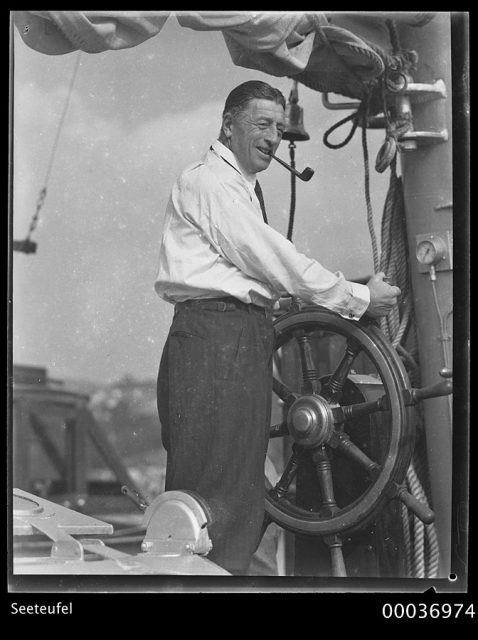
He even helped a Jewish woman escape the Holocaust by giving her a fake passport to a neutral country. At the end of the war, he helped negotiate the city of Halle’s surrender to the Americans.
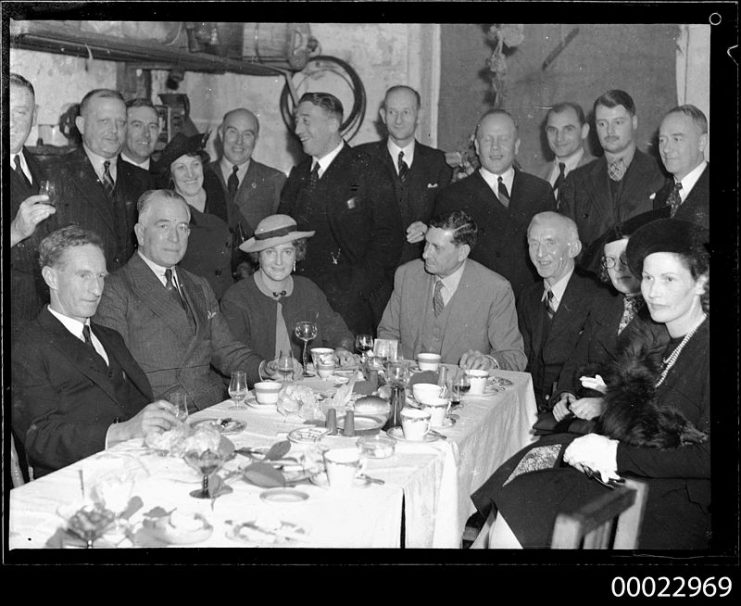
Today, Count Felix Von Luckner’s legacy is a complex, and often politicized, one.
Labor and left-leaning groups accuse him of being a rapist who collaborated with the Nazis and was only lionized by Conservatives who had a naive, idealistic view of warfare.
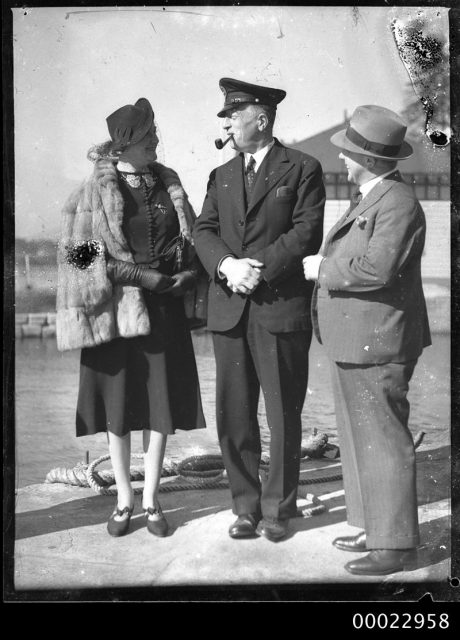
Many on the right, as well as the politically neutral Count Von Luckner Society, staunchly deny the charges against him. They point to the fact that he was never found guilty and that he defied the Nazis at times.
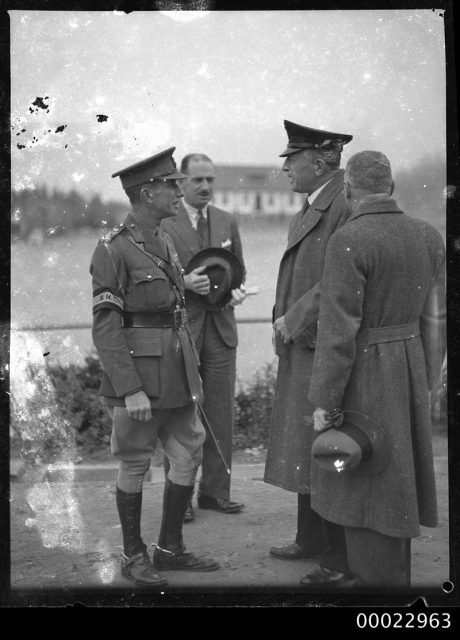
The Von Luckner Society, founded in Halle, especially respects his role in defending the city by negotiating its surrender. They hope to build a museum honoring him.
In this author’s opinion, Count Von Luckner seems to have been a man who genuinely tried to avoid casualties whenever possible and was determined to serve his country.
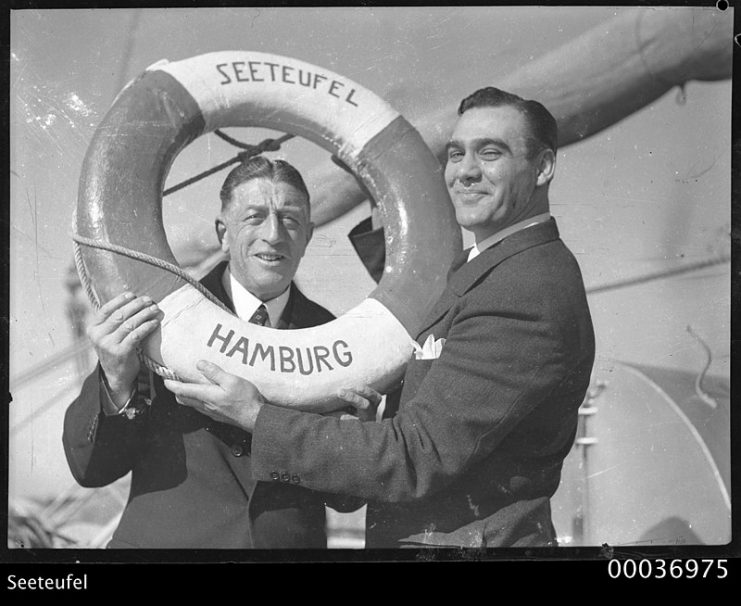
However, that dedication to his country led him down a dark path where he played a significant role in promoting fascist sentiments and gathering information to undermine Australia and Allied nations.
Documents released by the Australian government in recent years provide damning evidence that he met with numerous fascists while in Australia.
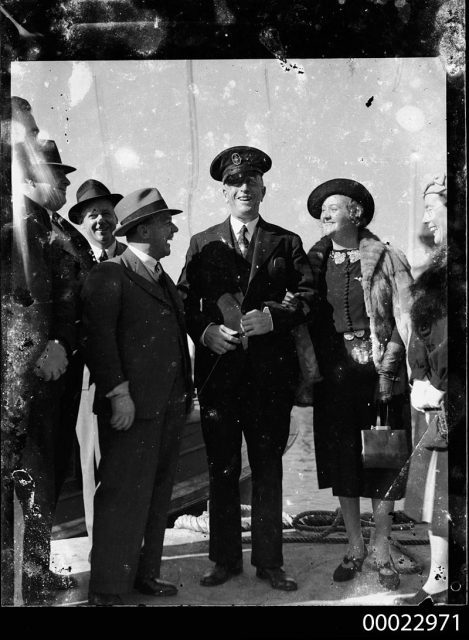
Read another story from us: Nazi Myths: What Some Still Believe About Hitler & the Third Reich
His withdrawal from public life shortly after his trial began also points to a strong possibility that he felt he would be found guilty and that he made a deal with the Nazis to avoid punishment.
Count Felix Von Luckner will go down in history as a talented warrior, but his legacy will forever be controversial.
